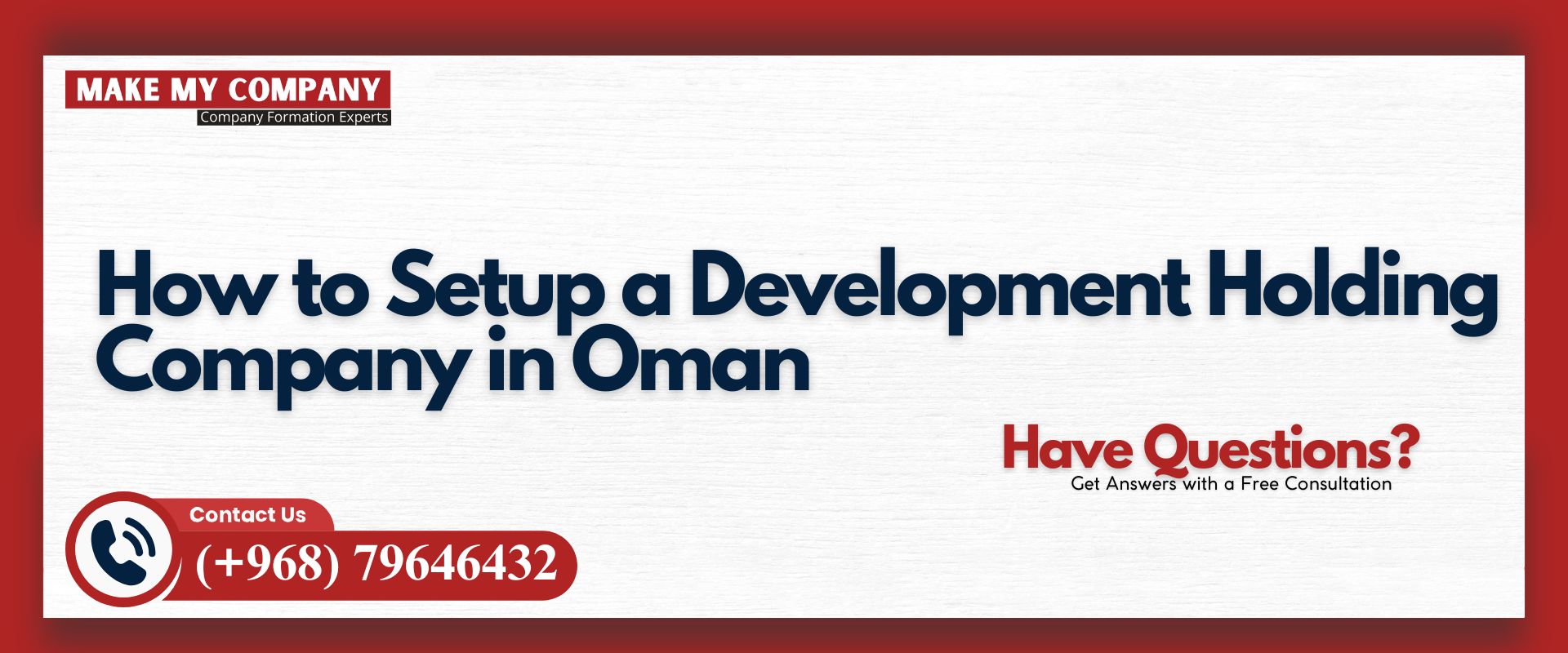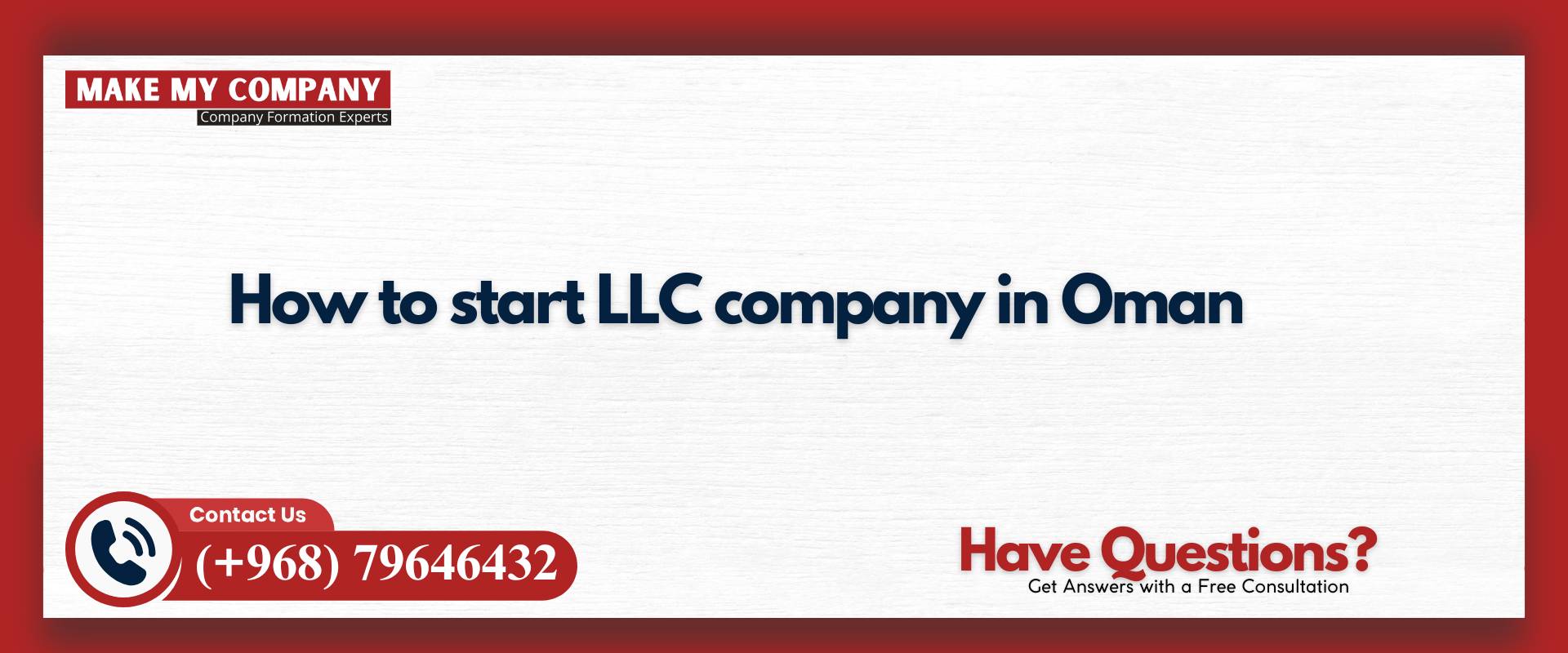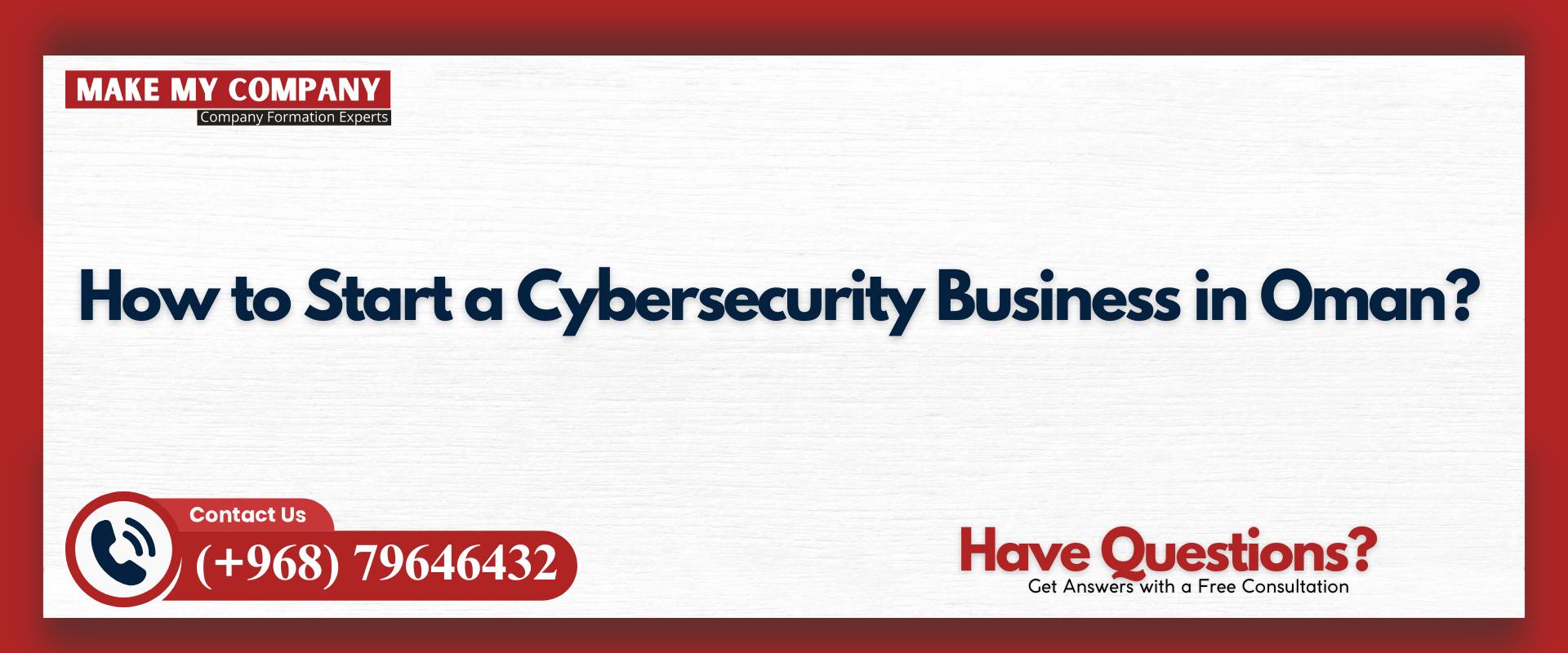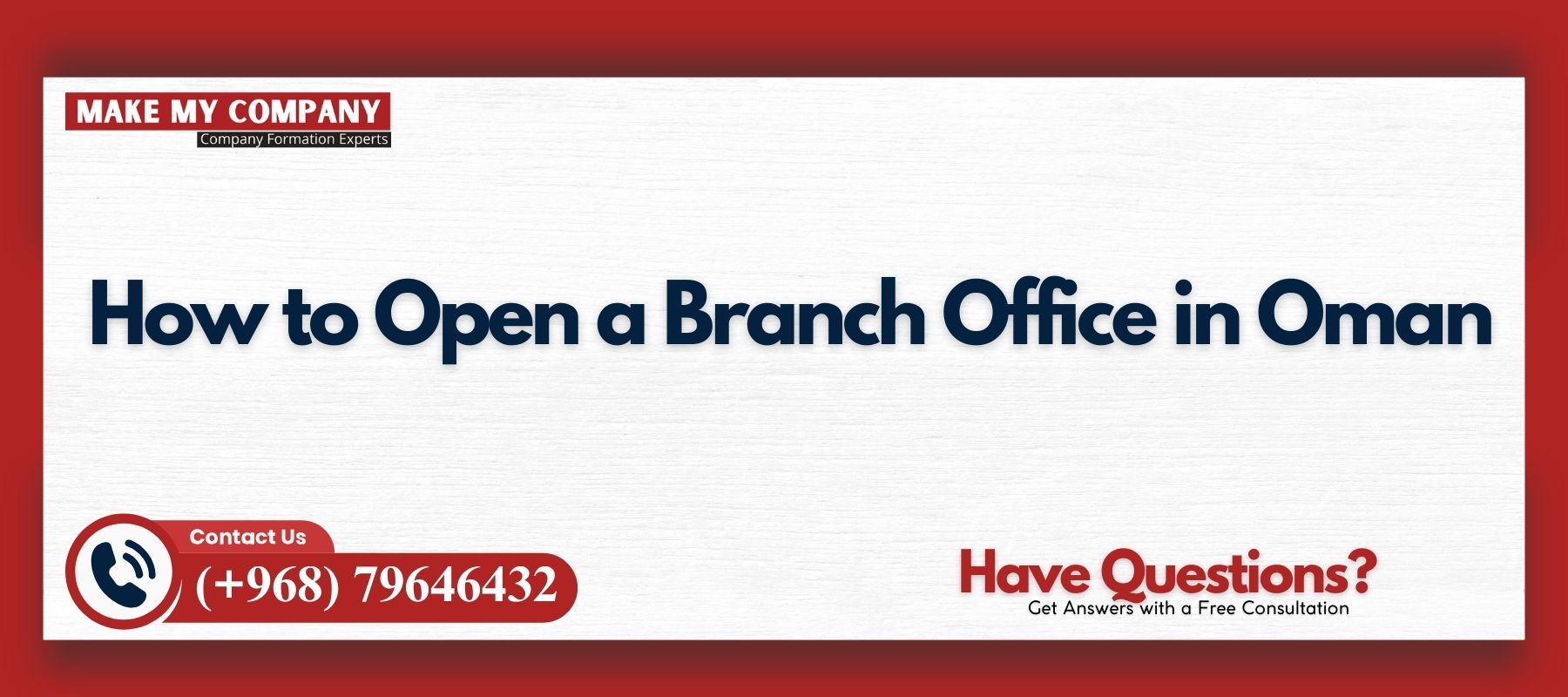Setting up a development holding company in Oman is an attractive option for investors seeking to expand their footprint in the Gulf region. Oman’s business environment is becoming increasingly favorable thanks to regulatory reforms, tax incentives, and the government’s commitment to attracting foreign investment. A development holding company allows investors to manage subsidiaries, oversee assets, and build long-term strategies. This guide explains everything you need to know about the process, benefits, costs, and compliance requirements when setting up a holding company in Oman.
Table of Contents
Understanding Holding Companies in Oman
A holding company in Oman is a legal entity created to own shares in other companies, manage investments, and oversee development projects. Unlike standard operating companies, holding companies do not engage directly in trade or production but instead provide strategic direction to subsidiaries. In Oman, holding companies are structured under commercial law and must comply with specific legal and financial obligations. These companies serve as powerful tools for asset protection, tax efficiency, and business growth.
Types of Holding Companies in Oman
In Oman, holding companies are classified into several types depending on their objectives, ownership structure, and regulatory scope. Each type has unique advantages and is designed to meet the needs of investors with different business models. Understanding the main categories helps investors choose the right structure when setting up a holding company in Oman. Below are the most common types of holding companies:
Development Holding Companies
A development holding company in Oman is focused on managing and supervising subsidiaries that contribute to national development projects. These companies typically invest in infrastructure, construction, manufacturing, logistics, and technology. Their main goal is to align with Oman Vision 2040 by supporting large-scale projects that strengthen the economy. Development holding companies provide a platform for investors to pool resources, manage risks, and strategically oversee ventures that have long-term socio-economic impact. They are highly attractive for regional and international investors seeking stable growth opportunities.
Investment Holding Companies
An investment holding company manages a portfolio of financial assets, including shares, bonds, and other securities, rather than engaging in direct operations. These entities are created to maximize returns for shareholders by diversifying investments across multiple industries. In Oman, investment holding companies benefit from favorable tax treatment on dividends and capital gains. They are ideal for investors who prefer passive income generation while minimizing risks. By managing investments under a single umbrella, these companies ensure efficient allocation of resources, financial protection, and long-term wealth management strategies.
Family Holding Companies
Family holding companies in Oman are established to manage family-owned businesses, real estate, and generational wealth. They help maintain continuity across generations while ensuring effective governance and control of family assets. These companies provide legal structures that protect family wealth, reduce disputes, and support succession planning. With Oman’s emphasis on private business growth, family holding companies are becoming increasingly popular among local entrepreneurs. They allow families to consolidate assets, plan for inheritance, and maintain long-term stability while minimizing risks of fragmentation in ownership.
Free Zone Holding Companies
A free zone holding company in Oman is established within special economic zones such as Duqm, Sohar, or Salalah. These companies enjoy unique incentives, including 100% foreign ownership, tax exemptions, and simplified import-export procedures. Free zone holding companies are particularly attractive for international investors managing cross-border operations, logistics hubs, and global supply chains. They also benefit from Oman’s strategic location on international trade routes, offering unmatched access to regional and global markets. For businesses aiming to operate internationally, free zone holding companies provide the most flexible and cost-effective structure.
Real Estate Holding Companies
Real estate holding companies specialize in owning, managing, and leasing properties in Oman. These entities focus on residential, commercial, and industrial real estate development. By separating real estate ownership from operating subsidiaries, investors protect assets from risks while ensuring consistent rental income. Oman’s growing demand for commercial and residential properties makes real estate holding companies an appealing choice for both domestic and international investors. They also offer tax efficiency and easier management of large property portfolios, making them ideal for real estate developers and long-term property investors.
Why Holding Companies Are Popular
Holding companies are gaining popularity in Oman because they allow investors to centralize decision-making, reduce financial risks, and benefit from tax advantages. By consolidating ownership under a holding company, investors can enjoy greater control while minimizing liability across multiple ventures.
Legal Framework for Holding Companies in Oman
The establishment of a development holding company in Oman is governed by the Commercial Companies Law (CCL) issued by Royal Decree No. 18/2019. This law provides the regulatory framework for incorporation, governance, and compliance.
Key Regulations for Holding Companies
The law requires holding companies to own at least 51% of their subsidiaries. They are also prohibited from engaging directly in business activities outside management, supervision, and control of their subsidiaries. Compliance with Omani labor laws, tax rules, and annual reporting obligations is mandatory.
Regulatory Authorities Involved
The Ministry of Commerce, Industry, and Investment Promotion (MoCIIP) is the primary authority overseeing company registrations in Oman. The Oman Tax Authority (OTA) ensures tax compliance, while free zone authorities regulate holding companies established within their jurisdictions.
Foreign Ownership Rules
Recent reforms allow foreign investors to establish holding companies with 100% ownership in most sectors. However, certain strategic industries may still require Omani partnerships. This flexibility makes Oman an attractive destination for international holding structures.
Benefits of Establishing a Development Holding Company in Oman
Setting up a holding company provides significant business and financial benefits for both local and foreign investors.
Asset Protection and Risk Management
A holding company separates ownership of assets from operational subsidiaries. This structure protects valuable assets from business risks such as litigation, debt, or insolvency of individual subsidiaries. Investors benefit from stronger financial security while maintaining control.
Tax Efficiency and Incentives
Oman offers a relatively low corporate tax rate of 15%, with exemptions for certain sectors and free zones. Holding companies also benefit from favorable tax treaties, helping them avoid double taxation. In some cases, dividends received from subsidiaries may be tax-exempt.
Strategic Business Growth
Development holding companies provide a central hub for long-term planning, allowing investors to allocate resources efficiently across subsidiaries. This enables scalability, diversification, and alignment with Oman’s national economic priorities.
Step-by-Step Process to Setup a Development Holding Company in Oman
The process of establishing a holding company in Oman involves several steps, from planning to registration.
Step 1: Business Planning and Structure
Investors must decide the legal structure of the holding company, whether as a Limited Liability Company (LLC) or Joint Stock Company (SAOG/SAOC). The decision depends on the number of shareholders, capital requirements, and long-term objectives.
Step 2: Reserve a Company Name
The next step is reserving a unique trade name through the MoCIIP portal. The name must comply with Omani naming conventions and reflect the nature of the holding company.
Step 3: Draft Articles of Association
The Articles of Association outline the company’s objectives, governance rules, and ownership structure. Legal advisors assist in preparing this document to ensure compliance with Omani law.
Step 4: Submit Documents to MoCIIP
All required documents—including shareholder details, financial statements, and proof of capital—are submitted to the Ministry for approval.
Step 5: Obtain Commercial Registration
Once approved, the company is issued a Commercial Registration (CR), allowing it to legally operate in Oman as a holding company.
Documents Required for Holding Company Setup in Oman
When applying to establish a development holding company, investors must prepare several documents.
Shareholder Identification Documents
Copies of passports, residency cards, and identification papers of shareholders and directors must be submitted.
Articles of Association
The company’s Articles of Association must clearly define its role as a holding company, including ownership of subsidiaries and management responsibilities.
Proof of Capital
Evidence of the required minimum capital must be provided. In Oman, holding companies must maintain a minimum capital of OMR 2 million.
Commercial Registration Certificate
If shareholders include existing companies, their commercial registration certificates must be included in the application.
Cost of Setting Up a Development Holding Company in Oman
The cost of setting up a holding company in Oman depends on location, business structure, and services used.
Initial Registration Fees
Registration fees at MoCIIP typically range between OMR 3,000 to OMR 5,000, depending on the size and complexity of the company.
Minimum Capital Requirements
A holding company must have a minimum paid-up capital of OMR 2 million deposited in a local bank account. This ensures financial stability and operational capacity.
Professional Service Fees
Investors often hire consultants, legal advisors, and auditors. These professional services may add OMR 10,000 to OMR 20,000 to setup costs.
Taxation of Holding Companies in Oman
Oman offers an attractive tax regime for holding companies, making it a strong jurisdiction for investors.
Corporate Tax
The standard corporate tax rate is 15%. However, certain free zones offer exemptions or reduced rates, making them attractive for foreign investors.
Dividend Income
Dividends received from subsidiaries are generally tax-exempt, ensuring tax efficiency for holding company structures.
Double Taxation Treaties
Oman has signed multiple double taxation treaties with other countries. These agreements help holding companies avoid paying tax twice on the same income.
Role of Free Zones in Holding Company Setup
Free zones in Oman provide unique benefits for holding companies, especially those engaged in international operations.
Benefits of Free Zone Holding Companies
Free zones such as Duqm, Sohar, and Salalah offer 100% foreign ownership, tax exemptions, and simplified licensing procedures.
Strategic Locations
Oman’s free zones provide access to major shipping routes, making them ideal for companies managing global supply chains.
Compliance in Free Zones
Although free zones offer incentives, companies must comply with annual reporting, auditing, and labor requirements under Omani law.
Challenges in Setting Up a Development Holding Company in Oman
While Oman offers attractive opportunities, investors should be aware of challenges.
Regulatory Complexity
Understanding Oman’s commercial laws can be challenging for foreign investors. Professional legal support is essential to navigate regulations.
High Capital Requirements
The minimum capital of OMR 2 million may be a barrier for small investors, limiting accessibility.
Compliance and Reporting
Holding companies must maintain accurate financial records and undergo annual audits, which can increase operational costs.
Best Practices for Setting Up a Holding Company in Oman
Adopting best practices helps ensure long-term success.
Work with Professional Advisors
Engaging business consultants and legal advisors ensures smooth setup, compliance, and strategic planning.
Align with Vision 2040
Companies should align their business activities with Oman Vision 2040, focusing on sectors like logistics, manufacturing, and technology.
Plan for Tax Optimization
Leveraging free zones and double taxation treaties ensures holding companies operate tax-efficiently.
Conclusion
Establishing a development holding company in Oman is an excellent opportunity for investors aiming to expand regionally while protecting assets and benefiting from tax advantages. With its strategic location, business-friendly environment, and Vision 2040 roadmap, Oman is positioning itself as a leading destination for investment structures. For smooth registration and compliance, working with experts in company formation in Oman ensures the process is efficient and future-proof.
FAQs
Can I create my own holding company?
Yes, investors can create their own holding companies in Oman by meeting capital requirements, submitting necessary documents, and complying with the Commercial Companies Law.
How much does it cost to setup a company in Oman?
The cost ranges from OMR 3,000 to OMR 5,000 for registration fees, plus OMR 2 million minimum capital and additional professional service fees.
How to set up a new holding company?
You need to draft Articles of Association, submit documents to MoCIIP, deposit capital, and obtain commercial registration approval.
Do you pay tax on a holding company?
Yes, holding companies in Oman pay corporate tax at 15%. However, dividends from subsidiaries are usually exempt, ensuring tax efficiency.
What are the disadvantages of a holding company?
High capital requirements, compliance obligations, and regulatory complexity are potential disadvantages for holding companies in Oman.









